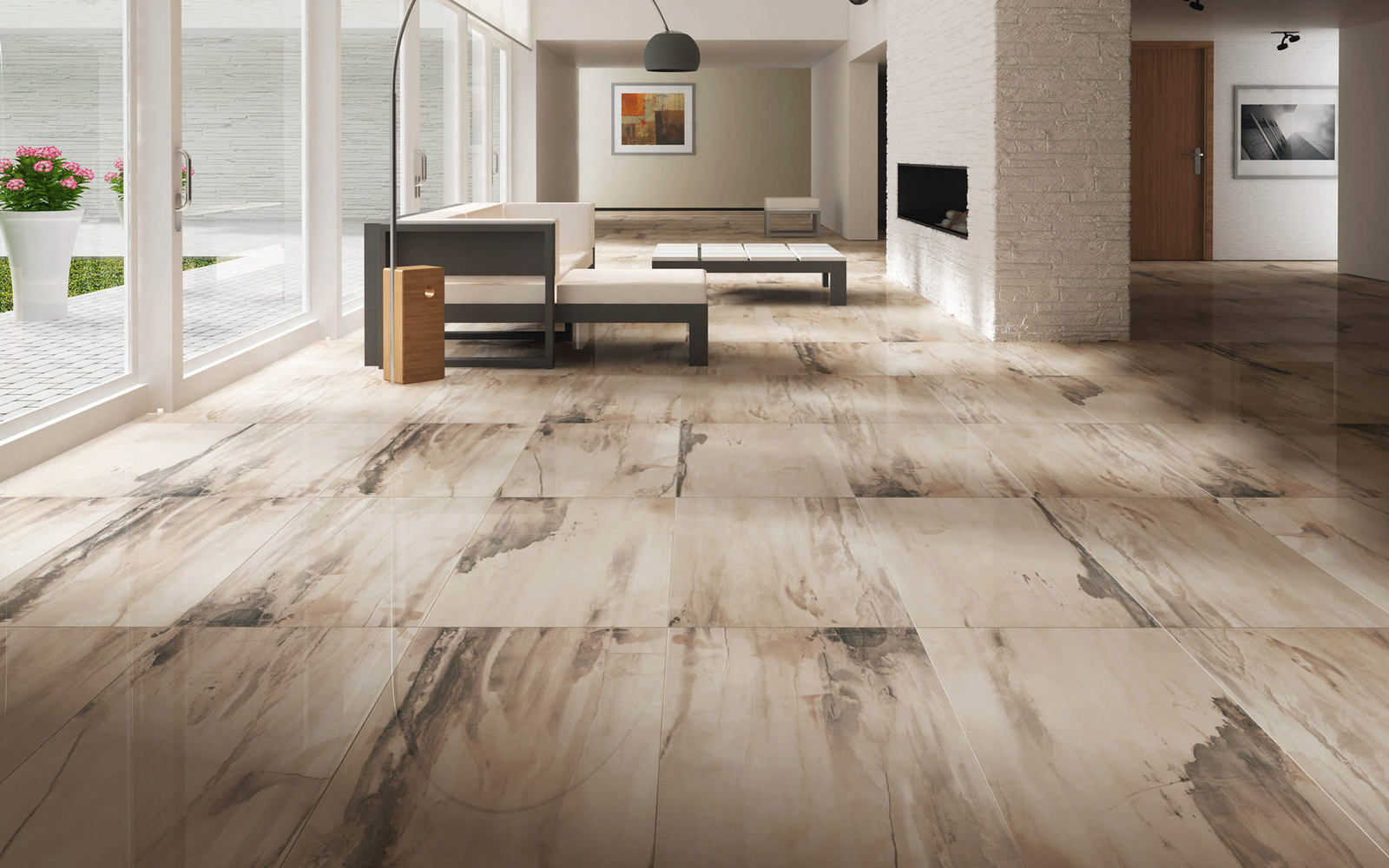
Buying guide for Tile, Stones, Glass, Metal Flooring
Installing new tile or stone is a great way to inject personality into your home. But with so many materials and designs available, choosing the right tile can seem overwhelming. To narrow your options, consider your personal design preferences as well as the characteristics of each type of tile. Do you want the bold color that glass can provide, or the neutral texture associated with decorative metal? Do you love the natural beauty of stone, or would you prefer a durable, low-maintenance surface such as porcelain?
Some tiles are designed only for use on walls, while others also work on floors and counter tops—be sure to look at the fine print. To help you select the best tile for your space, here’s a look at the pros and cons of porcelain, glass, metal, granite, marble, and slate, and an estimated cost for each.
Porcelain

Pros:
- Offers the look of stone without the maintenance hassles.
- Can be used indoors and out.
- Very durable and scratch-resistant, making it ideal for high-traffic areas
- Low moisture absorption makes it a good choice for kitchens and bathrooms.
- Features color throughout the porcelain tile (rather than just on the surface, like most ceramic tile) so scratches are less noticeable.
Cons:
- Lower-price lines feature limited sizes and colors.
- Some tiles are susceptible to staining, depending on the manufacturing process. (Polished porcelain tile will likely need to be sealed before grouting to increase stain resistance.)
- Often seen as less glamorous than real stone, but new, sophisticated designs are changing this perception.
Granite

Pros:
- Provides the authentic beauty of a natural material.
- Each stone has unique characteristics.
- Harder than other natural stones.
- Available in a wide range of patterns and colors.
- Resists scratches.
Cons:
- As a natural stone, it’s porous and can be stained by oils.
- Needs to be sealed regularly to minimize staining and etching.
- Installation costs are higher than other tile.
- Colors can vary greatly in granite tile, so be sure to see a good sample of tiles before purchasing any.
Marble

Pros:
- Provides the authentic beauty of a natural material.
- Each stone has unique characteristics.
- Its classic veining pattern fits into contemporary and traditional rooms.
- As a counter top surface, the cool stone is ideal for baking areas where you’ll be rolling out dough.
Cons:
- Marble is a soft stone, so it’s vulnerable to scratches.
- Colors can vary greatly among tiles, so be sure to see a good sample of marble tile before purchasing any.
- Acidic substances (such as lemons) will etch the stone’s surface.
- Will need to be sealed regularly to minimize staining and etching.
- If used as a counter top material, it will develop a patina and change appearance over time.
- Installation costs are higher than other tile.
Slate

Pros:
- Provides the authentic beauty of a natural material.
- The textured surface is naturally slip-resistant.
- Tiles are available in a variety of shapes.
- Not as porous or susceptible to staining as some other stones.
- Some slate tile resists frost and can be great for exterior applications.
- Generally less expensive than marble or granite.
Cons:
- Colors can vary greatly among tiles, so be sure to see a good sample of tiles before purchasing any.
- Due to the natural texture of slate, a tiled floor will be slightly uneven.
- Needs to be sealed regularly if you want it to maintain a shiny or matte finish.
- Not usually recommended for areas with standing water.
- Installation costs are higher than other tile.
Glass

Pros:
- Available in a wide range of colors, glass tile a great way to introduce color in a room.
- Durable and easy to clean.
- Waterproof—some glass tiles can be used in pools.
Cons:
- Less scratch-resistant than some other types of tiles.
- Some glass tiles may not be recommended for use on floors (check manufacturer’s instructions).
- More challenging to install than some other tile types.
Metal

Pros:
- An ideal way to add old-world appeal.
- Can be used on their own or as decorative accents or inlays with other types of tile.
- Available in several metals (including bronze, stainless steel, and copper) to coordinate with appliances, plumbing fixtures, and hardware in your kitchen or bath.
- Some companies apply a sealer to metal tiles to make them water- and UV-resistant.
Cons:
- Not suitable for use as a countertop surface.
- Depending on finish, they may not be recommended for use on the floor.
- Many so-called metal tiles are actually resin tiles with a metallic coating. (They can actually be lighter weight and easier to work with, but be aware that they aren’t solid metal.)
Nepal Construction Mart supply and installs various Tile and Stone Flooring.
For Orders, Quotation and further information Contact Us at:
T: 015261045 or 9801188110
E: nconstructionm@gmail.com